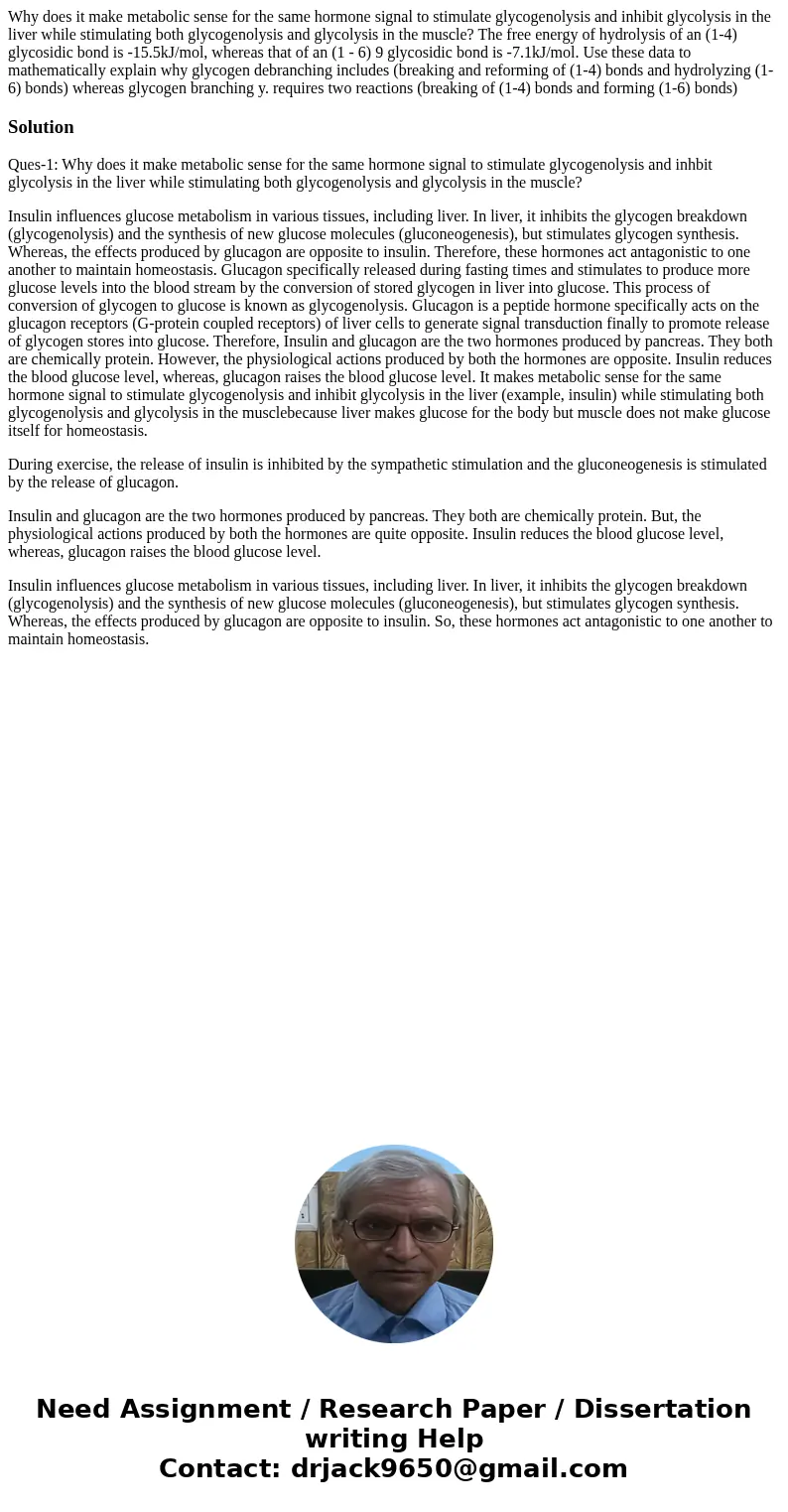Why does it make metabolic sense for the same hormone signal
Solution
Ques-1: Why does it make metabolic sense for the same hormone signal to stimulate glycogenolysis and inhbit glycolysis in the liver while stimulating both glycogenolysis and glycolysis in the muscle?
Insulin influences glucose metabolism in various tissues, including liver. In liver, it inhibits the glycogen breakdown (glycogenolysis) and the synthesis of new glucose molecules (gluconeogenesis), but stimulates glycogen synthesis. Whereas, the effects produced by glucagon are opposite to insulin. Therefore, these hormones act antagonistic to one another to maintain homeostasis. Glucagon specifically released during fasting times and stimulates to produce more glucose levels into the blood stream by the conversion of stored glycogen in liver into glucose. This process of conversion of glycogen to glucose is known as glycogenolysis. Glucagon is a peptide hormone specifically acts on the glucagon receptors (G-protein coupled receptors) of liver cells to generate signal transduction finally to promote release of glycogen stores into glucose. Therefore, Insulin and glucagon are the two hormones produced by pancreas. They both are chemically protein. However, the physiological actions produced by both the hormones are opposite. Insulin reduces the blood glucose level, whereas, glucagon raises the blood glucose level. It makes metabolic sense for the same hormone signal to stimulate glycogenolysis and inhibit glycolysis in the liver (example, insulin) while stimulating both glycogenolysis and glycolysis in the musclebecause liver makes glucose for the body but muscle does not make glucose itself for homeostasis.
During exercise, the release of insulin is inhibited by the sympathetic stimulation and the gluconeogenesis is stimulated by the release of glucagon.
Insulin and glucagon are the two hormones produced by pancreas. They both are chemically protein. But, the physiological actions produced by both the hormones are quite opposite. Insulin reduces the blood glucose level, whereas, glucagon raises the blood glucose level.
Insulin influences glucose metabolism in various tissues, including liver. In liver, it inhibits the glycogen breakdown (glycogenolysis) and the synthesis of new glucose molecules (gluconeogenesis), but stimulates glycogen synthesis. Whereas, the effects produced by glucagon are opposite to insulin. So, these hormones act antagonistic to one another to maintain homeostasis.

 Homework Sourse
Homework Sourse